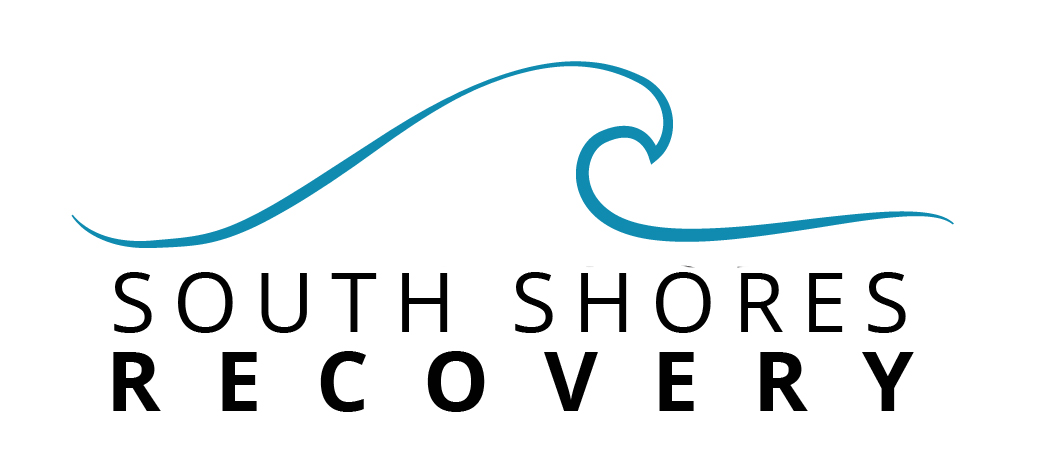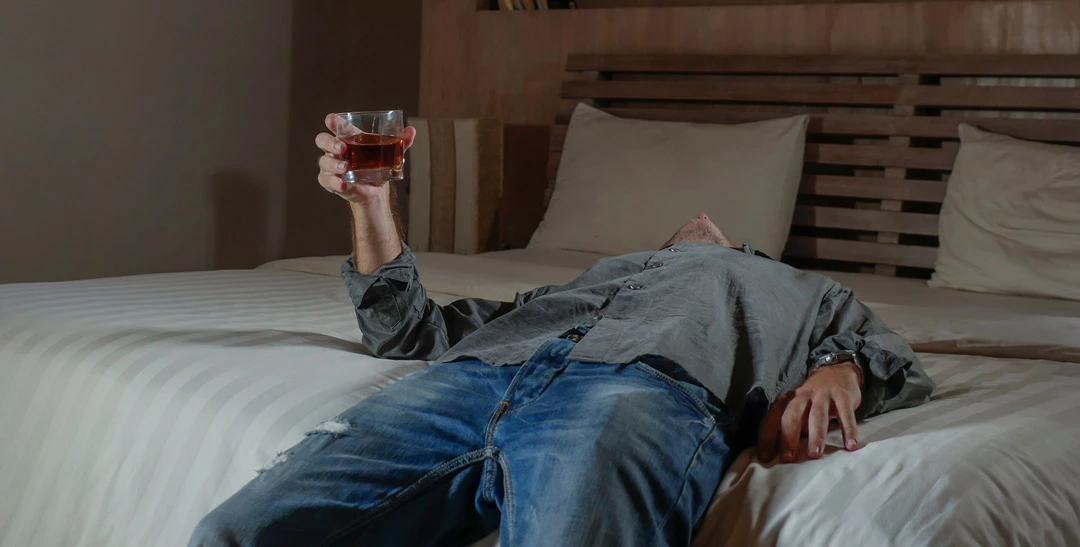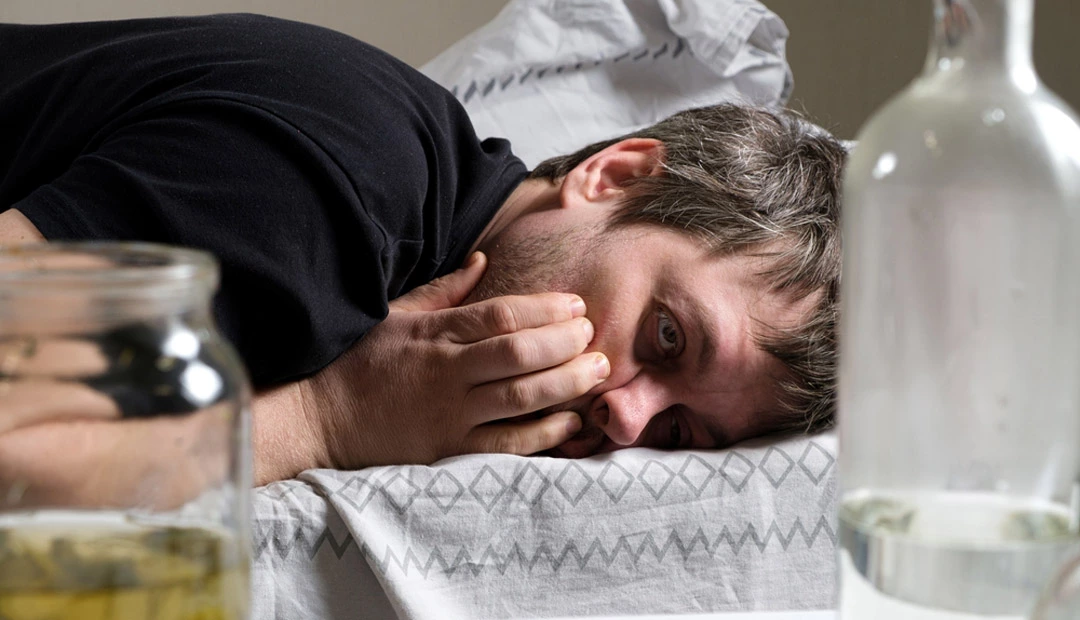Recovery from Alcohol Abuse
Getting a Foundation for Sobriety at South Shores
Welcome to South Shores Detox and Recovery. If you’re reading this, you’ve taken the first crucial step on an incredible journey toward recovery. Whether you’re struggling with alcohol abuse, drug addiction, mental health issues, or a combination, you’ve found the right resource.
It is more than difficult to attempt to quit drinking alcohol on your own, it can be dangerous and even deadly. But recovery from alcohol abuse does not have to be depressing and filled with risk. At South Shores, we have helped hundreds of clients achieve fulfilling lives in sobriety.
This guide will give you the knowledge and understanding you need to understand recovery from alcohol addiction better. We understand that this journey can be daunting. But remember, you’re not alone. We’re here to help you every step of the way.
Surprising Statistics About Alcohol Use in America
Alcohol addiction is a widespread issue that affects millions of adults across the United States. According to the National Institute on Alcohol Abuse and Alcoholism (NIAAA), about 14.5 million people aged 12 and older struggle with Alcohol Use Disorder (AUD). That number includes 9.0 million men and 5.5 million women.
The prevalence of AUD among adults was 5.3%, with 6.3% of men and 4.2% of women affected. The highest prevalence of AUD was among adults aged 18 to 29 (16.2%), followed by adults aged 30 to 44 (9.5%).
These statistics highlight the severity of alcohol addiction and underscore the importance of seeking professional help. At South Shores Detox and Recovery, we’re committed to providing the necessary resources and support to help you overcome your addiction.
Know the Signs of Alcohol Abuse
Recognizing the signs of alcohol abuse is often the first step towards seeking help and beginning the journey to recovery. These signs can manifest physically, mentally, and behaviorally. Thus, one must be aware of them in oneself or your loved ones.
Physical Symptoms of Alcohol Use Disorder
Physical symptoms of alcohol abuse can include frequent hangovers, unexplained injuries, and general neglect of personal appearance and hygiene. More severe signs can include tremors, chronic fatigue, and significant weight loss or gain.
Mental Symptoms of Alcohol Dependence
Mental symptoms can range from mood swings and increased levels of anxiety and depression to memory blackouts and difficulty concentrating. Over time, these symptoms can worsen, leading to significant mental health issues. You must seek treatment to heal.
Behavioral Symptoms of Alcohol Use Disorder
Behavioral signs often involve changes in social activities and relationships, neglect of responsibilities at work or home, and legal problems such as DUIs. Individuals may also start to isolate themselves from family and friends, and their alcohol consumption may begin to interfere with their daily activities.
It’s also important to note that alcohol abuse often co-occurs with substance abuse. That explains why individuals struggling with alcohol addiction may also be battling drug addiction. If you or a loved one are experiencing these symptoms, it’s crucial to seek professional help immediately.
What are the Key Causes of Alcohol Dependence?
Alcoholism can stem from a variety of factors. These can include the following:
Mental Health Issues
An underlying or undiagnosed mental health condition, such as depression, anxiety, and bipolar disorder, can lead individuals to self-medicate with alcohol. This can quickly spiral into abuse and addiction. The temporary relief that alcohol provides can make it seem like a viable solution, but it exacerbates these conditions and creates a cycle of dependence.
Social and Environmental Factors
Family members and friends who glorify drinking can contribute to the likelihood that you’ll abuse alcohol. The social environment can play a significant role in normalizing excessive drinking. Peer pressure and the desire to fit in can also lead individuals to start drinking.
Trauma
Individuals who have experienced traumatic events might turn to alcohol as a coping mechanism. This self-medication can lead to alcohol cravings. Thus, it perpetuates a dangerous cycle. Trauma can range from personal experiences of abuse or violence to experiences of war and disasters. Without proper therapeutic intervention, these individuals are at a high risk of developing alcohol addiction.
How South Shores Detox and Recovery Handles Addiction Treatment
Our professional addiction treatment program at South Shores Detox and Recovery delivers a safe and comfortable environment for our clients as they navigate the challenging withdrawal process. Medical supervision is a crucial component of this process.
Our experienced medical team is on hand 24/7 to watch your physical health, manage withdrawal symptoms, and administer medication as needed. This level of care ensures we address any complications that may arise during withdrawal. Thus, we reduce your risk and increase comfort.
Insurance Coordination and Intake
The journey to stop drinking and start recovering from alcohol begins before you enter our South Shores Detox and Recovery facility. The intake process is a crucial first step in the recovery process, and it’s designed to ensure that we can provide the most effective and personalized treatment plan for you.
During the intake process, our team will comprehensively assess your physical and mental health, substance use history, and personal circumstances. This information helps us understand the severity of your alcohol use problem, any co-occurring mental health conditions, and your unique needs and challenges. It also allows us to identify potential complications during alcohol detox, such as intense cravings or withdrawal symptoms.
Based on this assessment, we can make treatment referrals to the appropriate services within our facility. Whether you need medical supervision during detox, individual counseling, group therapy, or support for co-occurring mental health disorders, our goal is to provide the right combination of services to help you quit drinking and start a new healthy life.
Accessible Treatment Options for Orange County and Southern California
We understand that the cost of treatment can be a concern for many individuals and their families. That’s why we accept most insurance plans and work closely with insurance providers to maximize your benefits and minimize out-of-pocket costs. Our insurance coordinators manage the paperwork and communicate with your insurance company to ensure that you can focus on what’s most important: your recovery.
At South Shores Detox and Recovery, we’re committed to making the intake process as smooth and stress-free as possible. We’re here to support you every step of the way, from your first phone call to your last day of treatment and beyond.
Counseling and Therapy
At South Shores Detox and Recovery, we believe that effective treatment extends beyond addressing the physical aspects of addiction. We offer various therapeutic services, including individual counseling, group therapy, and family therapy. These therapies address the underlying issues contributing to addiction, such as trauma, stress, and mental health disorders.
Our experienced therapists use evidence-based approaches to help clients understand the root causes of their addiction and develop healthier coping mechanisms. They also teach how to build stronger, more supportive relationships.
Treating Co-Occurring Disorders
We recognize that addiction often doesn’t exist in a vacuum. Many clients struggle with co-occurring mental health disorders such as depression, anxiety, or post-traumatic stress disorder.
South Shores Detox and Recovery provide integrated treatment for these co-occurring disorders.
Our psychiatrists and therapists work together to develop an alcohol addiction treatment plan for addiction and any underlying mental illness. This holistic approach ensures that our clients receive the most effective treatment. They are also more likely to have long-term success in recovery.
Coping Skills and Aftercare Planning
Alcohol treatment does not end at a finite point.
Maintaining long-term sobriety requires more than just overcoming physical alcohol dependence. It requires learning new coping skills, emotional control, and identifying potential triggers for relapse. At South Shores Detox and Recovery, we provide our clients with the tools they need to navigate these challenges. We offer training in stress management techniques, emotional regulation skills, and relapse prevention strategies.
You will also learn how staying sober can lead to healing family relationships. Your drinking habits may have alienated your friends and family. But as a recovering alcoholic, you will gain the insights and tools to patch up those relationships.
Aftercare is an integral part of our treatment plan. Once the initial phase of treatment is complete, our clients transition to our comprehensive aftercare program. This program includes ongoing therapy, support groups, and referrals to sober living housing if needed. We aim to provide our clients with the support and resources they need to stay sober and thrive in recovery.
What Is Alcoholics Anonymous?
Alcoholics Anonymous (AA) is an international fellowship of individuals with a shared drinking problem. It is nonprofessional, self-supporting, multiracial, apolitical, and available almost everywhere. There are no age or education requirements, and membership is open to anyone who wants to do something to resist the urge to drink.
Founded in 1935, AA operates on the principle of members sharing their experiences, strengths, and hopes with each other to avoid harmful drinking patterns and help others recover from alcoholism. The only requirement for this support group is a desire to stop drinking.
At the heart of AA is the famous Twelve Step program, a set of guiding principles outlining a course of action for recovery from addiction, compulsion, or other behavioral problems. The steps include admitting powerlessness over your alcohol use, making a moral inventory of oneself, making amends for past wrongs, and helping other alcoholics achieve sobriety.
AA meetings, which can be open or closed, provide a supportive environment where members can share their experiences and draw strength from each other. Open meetings are available to anyone interested in AA’s approach to recovery from alcoholism, while closed meetings are for AA members only, or for those who have a drinking problem and “have a desire to stop drinking.”
The Importance of Support in Seeking Sobriety
It’s important to note that AA sees itself as complementing, not competing with, other forms of treatment. They see how no single treatment can address such a broad problem. Many people find that attending AA meetings and participating in its programs can be a valuable part of a comprehensive recovery plan, including medical treatment and therapy.
At South Shores Detox and Recovery, we recognize the value of support groups like AA in recovery. As part of our comprehensive treatment approach, you are encouraged to connect with AA and other resources in your community.
What to Expect During Alcohol Withdrawal
Alcohol withdrawal symptoms can be challenging. But professional treatment can help ease cravings and other symptoms. At South Shores Detox and Recovery, we provide medical supervision during this critical period. We also educate our clients about potential complications. With our support, you can navigate the withdrawal process safely and effectively.
Don’t Detox at Home: The Danger of Delirium Tremens
Delirium tremens (DTs) is a severe form of alcohol withdrawal that can occur when someone who has been drinking heavily for weeks, months, or years stops or significantly reduces their alcohol consumption.
DTs typically start 48 to 72 hours after the last drink. But they can occur up to 10 days after the last drink. Symptoms include severe confusion, agitation, fever, hallucinations, and seizures. Delirium tremens is a medical emergency and can be life-threatening if not treated promptly.
The exact cause of DTs is not well understood. But it appears to relate to the effects of alcohol withdrawal on the brain’s neurotransmitters. Alcohol depresses the nervous system, with chronic heavy drinking causing the brain to adapt to the constant presence of alcohol. When alcohol you remove the alcohol suddenly, the brain can go into a kind of overdrive, leading to these severe symptoms.
DTs also explain why you should never attempt to detox from alcohol or any substances alone. It’s why stopping drinking “cold turkey” sounds great until reality sets in.
Meet Benny: An Inspiring Story of Victory Over Heavy Drinking
Let’s take a moment to share a story of triumph over adversity. This story encapsulates the journey many face when battling alcohol addiction. Meet Benny, a young father who found his way back from the brink of self-destruction with the help of South Shores Detox and Recovery.
Benny was in his mid-twenties. He had to juggle the responsibilities of part-time college, a full-time job, and a new family – his girlfriend and their baby. To manage the stress, he began drinking, initially as a way to blow off steam. His friends, all still single and not working full-time, enjoyed hitting the clubs and drinking most nights. His crew enjoyed a great social life. But Benny did not know when to stop. When drinking, he was the life of the party. But this lifestyle soon began to take its toll.
The financial drain was significant. Benny often found himself wondering how much money he had spent on alcohol. So just how much did he spend drinking? There were times when he couldn’t pay the rent. Worse, his irresponsible behavior led to his young family’s eviction from their California apartment. His girlfriend, unable to cover all the bills with her paycheck, took their baby. She moved back east with a family member to avoid homelessness.
Choosing to Turn Toward a Sober Lifestyle
That point was Benny’s wake-up call – the consequences were dire. He finally realized he was out of control. His girlfriend, who had heard great reviews about South Shores Detox, begged him to seek help. Benny made the call that would change his life.
At South Shores, Benny learned how to manage stress better. He underwent detoxification, participated in counseling, and learned healthy habits and smart relaxation techniques. He struggled with cravings at first. But he pushed through them like a warrior. He got clean and sober, and in the process, he regained control of his life.
Today, Benny and his girlfriend are planning to reconcile. He’s looking for a new job after in-patient treatment. Benny is now more committed than ever to staying on the right track. He plans to propose to his girlfriend when she and their baby return. Benny knows that his little family has a bright future now. But that future had seemed impossible a short while ago.
Benny’s story is a testament to the transformative power of recovery. It’s a reminder that no matter how far one has fallen, it’s never too late to seek help and make a change. At South Shores Detox and Recovery, we’re here to help you write your own treatment success story.
Inpatient Treatment Versus Outpatient to Stop Alcohol Abuse
When it comes to recovering from alcohol, the journey often requires professional treatment. The choice between inpatient and outpatient treatment can significantly impact the success of your recovery. Both options have advantages. The best choice depends on your circumstances. These include the severity of your drinking problem, your physical health conditions, and your support system.
Inpatient treatment involves entering treatment and living within a facility for a designated period. This type of treatment is typically recommended for individuals with severe problem drinking or those who have tried to stop drinking but have experienced intense cravings or withdrawal symptoms.
Inpatient treatment provides a structured environment away from the triggers of daily life, allowing individuals to focus solely on their recovery. Healthcare providers are available 24/7 to provide ongoing support, manage withdrawal symptoms, and address co-occurring mental health conditions.
A Stepdown Setting That Leads to Successful Sobriety
In contrast, outpatient treatment allows individuals to continue living at home while attending treatment sessions at a clinic or facility. This option may be suitable for those with less severe alcohol problems or those who have significant work or family commitments. Outpatient treatment provides flexibility but also requires a solid commitment to recovery. It’s essential to have a supportive home environment and healthy relationships that encourage sobriety.
Regardless of the treatment type, inpatient and outpatient programs address the psychological aspects of addiction. They provide therapy and counseling to help individuals understand the root causes of their addiction, develop new skills to manage stress and cravings, and build healthier coping mechanisms.
Ultimately, the decision between inpatient and outpatient treatment should be made in consultation with treatment providers who can assess your individual needs and recommend the most effective treatment approach. At South Shores Detox and Recovery, we offer inpatient and outpatient treatment options for alcohol recovery. Throughout the treatment process, we will provide the evidence-based care and support needed to overcome alcohol addiction.
Begin Your Journey to Recovery from Alcohol Abuse
Overcoming alcohol addiction can be challenging. But you don’t have to face it alone. At South Shores Detox and Recovery, we provide the support, resources, and professional care you need. It is time right now to reclaim your life from addiction.
Our comprehensive treatment approach addresses the physical aspects of addiction and the underlying mental illness. We help you see the behavioral patterns that contribute to substance abuse. You do this in a safe, supportive environment. You will start managing stress and your emotions. You’ll also build a strong foundation for sobriety. We know you can overcome alcoholism.
Remember, it’s never too late to seek help. Whether you’re struggling with alcohol abuse or concerned about a loved one, reach out now. Asking for help is the first step towards a healthier, happier future.
Reach Out to South Shores Detox and Recovery
Don’t wait to start your recovery journey. Contact South Shores Detox and Recovery for a confidential consultation today. Our compassionate, experienced team is ready to help. We will guide you toward a life free from addiction to alcohol or drugs.
The best time to start is now, when you have the momentum and opportunity to seek support and seize the opportunity for an amazing sober life!
Contact us







